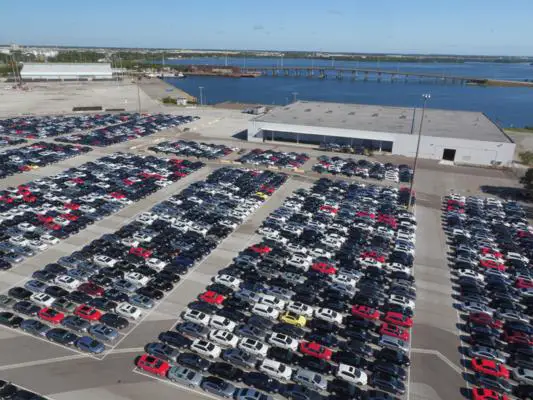Construction of an over US $12m, 270 000 meters squared state-of-the-art AutoPort located off the N3 at Camperdown between Pinetown and Pietermaritzburg in KwaZulu-Natal, South Africa, has begun.
The project will be executed in two phases according to the developer a JSE-listed freight logistics and financial services company called Grindrod Ltd. The first phase will be the construction of an undercover storage facility of about 2 400 vehicles and will cost approximately US $7.4m while the second phase estimated to cost US$4.9m will accommodate 2 300 vehicles.
Construction of the first phase will be completed in the second quarter of this year while that of the second phase is expected to commence in the second half of this year. The developer said options to increase the capacity of the facility to accommodate a further 12 000 vehicles are in place and will be established in line with market demand.
Inside the Autoport
According to the developer this first-of-a-kind facility for finished vehicle logistics in South Africa includes reticulation for plug-in hybrid electric vehicles, metal roofing to mitigate fire and hail, a fully equipped workshop and fitment center, a smart repairs facility, clearing and forwarding activities, bonded and duty paid storage, storage for trucks, light motor vehicles, and other rubber-tired vehicular equipment. They also mentioned an emphasis on the ergonomic design of the facility to ensure efficient and effective vehicle flows.
Also Read: Construction of Tshwane Automotive Special Economic Zone in South Africa kicks off
Furthermore, as part of its Vision 2025, Grindrod revealed plans to incorporate features such as solar panels, rainwater harvesting, wash-water recycling, and plastic recycling systems where plastic wrappings removed from vehicles will be transformed into bricks and plastic roof sheeting, all of which will be used in commercial applications.
The facility accessibility
Andrew Waller, the CEO of Grindrod said that they have engaged with Transnet to enter into a public-private partnership (PPP) that will see the construction of a rail siding on the facility, which is adjacent to the Natal corridor (Natcor).
“We already have rail infrastructure that will support this opportunity, which will give OEMs [original equipment manufacturers] the option of railing vehicles or trucking them to the facility,” said Waller. The plant will be used for both imported and exported vehicles.

